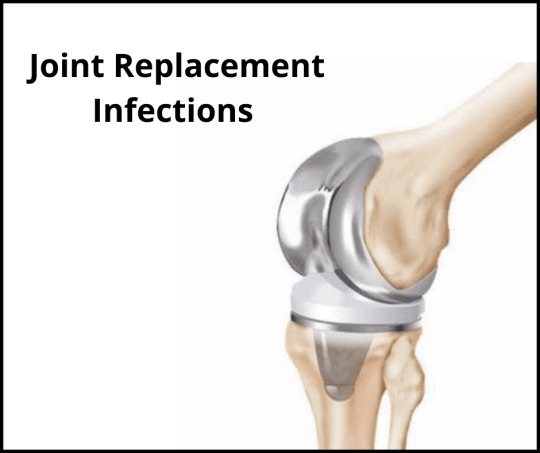Don't wanna be here? Send us removal request.
Photo

Eye Specialist Ad Creativity Post Dr. Chakne Children’s and Eye Hospital is a renowned and Best Eye Hospital in PCMC (Pimpri-Chinchwad) that specializes in diagnosing Cataract and Retina Surgery and serves as an eminent provider of routine eye care, this hospital also provides pediatric solutions, newborn care, Vaccination, and Immunization, and routine health check-ups your infants. The Hospital has earned recognition as a dedicated Ophthalmology treating eye conditions and caring for patients. Consult Now
0 notes
Photo

Get Treated Under New Advance Orthopedic Technology. Consult Now to Know More...
#orthopedic surgeon in nashik#Bone Health Tips#india#Joint Replacement doctor in Nashik#ads#advance technology
1 note
·
View note
Text
The importance of preventative orthopedic care
Preventative orthopedic care is becoming increasingly important in India as the population ages and lifestyles become more sedentary. This type of care involves taking proactive measures to prevent injuries, illnesses, and degenerative conditions from occurring in the first place. By focusing on preventative care, patients can improve their overall quality of life, reduce the need for invasive treatments, and save money in the long run.
One of the most significant benefits of preventative orthopedic care in India is the ability to catch and treat issues early on. Orthopedic conditions such as osteoarthritis and degenerative disc disease can often be managed and even reversed with early intervention. This can help prevent the need for more invasive treatments, such as surgery, down the road.
Preventative orthopedic care also helps to maintain mobility and flexibility. Regular exercise and physical therapy can help to strengthen the muscles and joints, reducing the risk of injury. This is particularly important for older adults in India, as they are more susceptible to falls and other accidents.
Another important aspect of preventative orthopedic care in India is education. Orthopedic doctors and physical therapists can provide patients with the knowledge and tools they need to take care of their bodies, including proper exercise and nutrition. They can also provide guidance on how to prevent common injuries and conditions, such as carpal tunnel syndrome and tennis elbow.
Lastly, preventative orthopedic care can also save patients money in the long run. By catching and treating conditions early on, patients can avoid the high costs associated with more invasive treatments. Additionally, by investing in preventative care, patients can reduce the need for time off work and other expenses associated with recovery.
At Orthopedic Hospital, we understand the importance of preventative orthopedic care in India. Our team of orthopedic doctors and physical therapists is dedicated to helping patients maintain a healthy musculoskeletal system through regular check-ups, education, and personalized treatment plans.
In conclusion, preventative orthopedic care is a crucial aspect of maintaining a healthy musculoskeletal system in India. By catching and treating issues early on, maintaining mobility and flexibility, providing education, and saving money in the long run. At Orthopedic Hospital, we are dedicated to providing our patients with the best preventative care in India.
0 notes
Text
Simple Ways to Increase the Success Rate of Joint Replacement Surgery

Simple Ways to Increase the Success Rate of Joint Replacement Surgery
Hip and knee replacements are among the most common orthopaedic Surgeries. A large number of patients get knee and hip replacement surgeries to treat severe arthritis symptoms. Arthritis can be effectively treated with hip and knee operations. However, this procedure can lead to some potentially dangerous complications. Stiffness, vexing discomfort, healing problems, and other major issues are examples of complications.
It is much more convenient for people to overlook the complications. However, it is preferable to be aware of such issues and how to mitigate any risk linked with them. Small changes in habits and a few tips could lead to a procedure that is free of complications. Complication risk prevention is not easy, but it may be reduced to some amount with the help of some ideas and by taking some firm efforts by you and your doctor.
Here are a few tips that will undoubtedly assist you in achieving successful knee and hip surgery. One can find the best Orthopedic Surgeon in Nashik.
1. Reduce body weight
Obesity has become one of the most common health problems in the twenty-first century. It's what's driving the rise in arthritis sufferers seeking knee or hip surgery. The number of cases of arthritis has increased as a result of increased obesity in the general population. If your BMI is greater than 45, you are more likely to need joint replacement surgery.
Prior to surgery, people who are considering surgery should focus on losing weight. It can be tough to exercise if you have significant joint pain, but the good news is that there are numerous exercises and yoga that you can do that will not put stress on your knees or joints. Prior to surgery, you should make losing weight your top focus.
2. Quit smoking
Smoking is known to be harmful to your health and healing process. It interferes with joint surgery by blocking the microvascular circulation system. It is a well-known fact that quitting smoking prior to surgery will significantly lower the likelihood of additional surgery-related complications. Smoking should be stopped at least 6 to 8 weeks prior to surgery.
3. Avoid alcohol
Alcohol is bad for your health, especially if you're having knee surgery, because studies show that those who drink have a higher chance of complications after the procedure.
4. Prevent anemia
An anaemic person may have a low blood count after surgery, which will obstruct the healing process since low blood cells indicate a lack of oxygen in the blood. Following joint surgery, a blood transfusion may be required.
Anemia can be caused by a variety of factors. The following are a few of them:
Deficiency of Iron
Kidney problems
Inflammatory issues
5. You've kept your psychological and mental wellness in good condition.
You should look after your mental health because it is one of the most crucial aspects in a successful operation. People who are clinically depressed have a higher risk of problems following surgery and have lower satisfaction with joint replacement surgery.
Kasliwal Hospital
Joint replacement surgery is one of the most important decisions you will make in your life. However, problems following surgery are extremely unlikely. Your first objective should be to reduce the likelihood of problems following surgery. You can successfully minimize that risk by following certain suggestions and making small changes to your daily habits. Get in touch with our healthcare team to discuss the journey of your Joint Replacement in Nashik. We have the best healthcare experts at Kasliwal Hospital who can help you through your rehabilitation process, making it stress-free and successful.
#orthopedic doctor in Nashik#orthopedic surgeon in Nashik#orthopedic hospital in Nashik#Joint Replacement in Nashik#Joint Replacement Doctor in Nashik#Arthroscopy Surgeon in Nashik#Sports Injury Specialist in Nashik#knee Replacement surgeon in Nashik#Hip Surgeon in Nashik#Shoulder Surgeon in Nashik
1 note
·
View note
Text
How Can Infection Be Prevented After Joint Replacement Surgery?

How Can Infection Be Prevented After Joint Replacement Surgery?
Whether a person is old or young enough for joint replacement surgery is one of the most commonly asked queries of a joint replacement surgeon. There is no certain age at which a person can safely have joint replacement surgery, according to the top joint replacement surgeon in Nashik.
The surgeon, on the other hand, always makes the final decision after weighing the benefits and risks of the surgery with the patient in mind. While the benefits outweigh the hazards for some patients, even if they are over 90 years old, it is also surprising that many young people are not suitable candidates for joint replacement surgery due to reasons that are entirely within their control.
In the case of joint arthroplasty, the majority of these conditions raise the risk of a serious infection known as prosthetic joint infection (PJI). A small percentage of people who get knee or hip replacements, about 1%, may develop a joint replacement infection.
Infections can develop in the wound or deep into the body, where the replacement joints are implanted. Infections can develop during your stay in the hospital or after you return home. Infections in joint replacements can arise many years after the surgery. PJI is a severe infection that is frequently accompanied by pain. This infection takes a long time to cure and inhibits the patient from experiencing pain alleviation and limb functionality.
Easy Methods to Prevent Prosthetic Joint Infection (PJI)
Preventing infection from forming in the first place is the best method to avoid the painful experience of infection. Infection prevention requires specific steps from both the surgeon and the patient. If you're ready for joint replacement surgery, there are four strategies to lower your risk.
1 Antibiotics
Antibiotics are administered to the patient in the operating room within an hour of the surgery starting to prevent infection. Following the operation, antibiotics are given once every 24 hours.
2 Nasal Scanning
Many weeks before surgery (in the preoperative period), testing for the presence of Staphylococcus bacteria in the nasal passages has been seen to prevent joint infection. Patients who have staphylococcus germs in their noses are given an intranasal antibiotic ointment to apply. The type of bacteria discovered also determines the type of antibiotic given to the patient during surgery.
3 Smoking
Before surgery, it is a good idea to quit smoking. Nicotine users have been observed to have issues that cause wound healing to be delayed after an operation. Infections have a higher likelihood of setting in if wounds take longer to heal. Those who stopped smoking before surgery had a lower infection risk.
4 Blood Sugar
If the patient is diabetic, it is critical that he or she maintains blood sugar control before and after surgery. Prior to surgery, a HbA1c test should be performed. Those with a HbA1c value more than 7 are more likely to develop a PJI. The procedure should be postponed until the HbA1c level is stable.
5 Weight Management
Maintaining a healthy weight is critical for the patient. It has been discovered that having a healthy weight or a BMI of 35 to 40 kg/sq.m. is beneficial. As a result, it is preferable to keep the patient's weight within a healthy range prior to surgery. If the patient's BMI is over 40, the risk of PJI is seven times higher than it would be otherwise.
Finally, for a variety of reasons, the patient must take responsibility for their health and quit smoking, maintain a healthy weight, control diabetes, and aggressively manage these factors if necessary in order to enjoy a quick recovery and wound healing, as well as avoid infection in the replaced joint. It's also crucial that the patient inquires about the hospital's infection-prevention procedures. To learn more about your joint replacement journey, contact our Best joint replacement doctor in Nashik.
#hip replacement infection death#infection after hip surgery in the elderly#hip replacement late infection symptoms#antibiotics after knee replacement#sinus infection and knee replacement#knee replacement infection amputation#hip replacement infection prevention#orthopedic doctor in Nashik#orthopedic surgeon in Nashik#Joint Replacement Doctor in Nashik
0 notes
Text

After joint replacement surgery, life actually improves over time. For your own safety, make sure you follow your surgeon's instructions. Dr. Vishal Kasliwal, the top joint replacement surgeon in Nashik, India, can help you. He is a leading, highly talented Orthopedic surgeon in Nashik who is well-known for his skills in the field. He flawlessly mixes cutting-edge technology with refined techniques for successful Joint Replacement surgeries at every step. For world-class treatments, make an appointment with our staff.
Is it safe to participate in sports after joint replacement surgery?
Historically, the prime motive for having joint replacement surgery has been pain alleviation, but the need to improve joint function has also become a motivator for patients, particularly those who participate in sporting activities.
Patients and orthopaedic surgeons are concerned about different things after joint replacement surgery. While patients are concerned about pain relief and regaining function, surgeons are concerned about pain relief, mobility, and how long the joint replacement will last before requiring a revision if necessary. In order to extend the life of the prosthesis, joint replacement surgeons frequently advocate low-impact activities or sports to patients and insist on avoiding high-impact sports.
So you're wondering if you can participate in physical activities after having a joint replacement. Yes, you certainly can. However, you should follow your orthopaedic doctor's advice and be under his or her supervision.
After joint replacement surgery, are athletic activities safe?
Following joint replacement surgery, patients require a great deal of attention. To avoid further harming their joints, they should be soft and cautious. Patients who have just undergone joint replacement surgery can, in fact, participate in athletics without risking further injury. They should, however, begin around twelve weeks after surgery. The implant would have been fully integrated into the biological system by this point.
Most experts, however, would have concerns and advise you to consider the risk or impact of your activity on your joints before participating in severe physical activities. Some of the sporting activities that are safe following joint replacement surgery are listed below.
Walking
This exercise is good for your health. Start with a few moderate steps and work your way up to longer distances. After surgery, walking will help you burn calories and stay fit.
Swimming
Swimming does not require any weight lifting. As a result, it is a risk-free pastime. In reality, it aids in the flexibility of the joint as well as movement training.
Dancing
Make some slow movements in reaction to some music. Slow dance techniques are a great approach to strengthen your knee joint without injuring yourself. Dancing is an excellent way to stay attentive and flexible.
The impact of implant wear on sports performance
Joint replacements, on the other hand, actually improve joint functionality. When compared to before the procedure, a person may perform better following a joint replacement
What effect does activity have on the prosthetic joint? After a few years, the changes are completed (only if required). The patient's level of activity may influence how quickly the joint wears out and how often it needs to be replaced.
Although no research has been done to establish the type of exercise and its effect on a prosthetic joint, most experts recommend lighter activities that do not put a lot of strain on the joints.
What should you do prior to participating in sports?
The option you make in this case has a significant impact on your health, the length of time you will stay before undergoing revision, and the risk of subsequent harm. This is what you must do before participating in athletic activities.
Make an appointment with your surgeon.
Have a qualified sport trainer on hand.
Strengthen your back, knees, and hips.
Be aware of the dangers that come with engaging in the sport.
Kasliwal Hospital
#what activities can you not do after knee replacement#can you run after knee replacement#famous athletes with knee replacements#knee replacement for active patients#exercise limitations after knee replacement#can you play tennis after knee replacement#can I play softball after knee replacement#orthopedic doctor in Nashik#orthopedic surgeon in Nashik
0 notes
Text
A Simple Guide to Women's Bone Health

Bone health is important for the body since it serves a variety of purposes, including creating structure, protecting organs, and supporting muscles. Women are more likely than men to develop osteoarthritis over time, making it critical to maintain bone health from a young age. As a result, it's critical to create strong bones and keep them healthy by providing them with the proper nutrition on a daily basis.
What factors affect bone health?
Calcium deficiency
A low-calcium diet reduces bone density and raises the risk of bone fractures.
Use of Tobacco and Alcohol
Tobacco use and heavy alcohol intake wreak havoc on the bones, making them weak.
A sedentary way of life
Osteoarthritis is increased by sitting for lengthy periods of time and being physically inactive.
Are you overweight or underweight?
Underweight people have less body mass, while overweight people have increased pressure on their bone joints, which causes arthritis.
Hormonal changes
Bone loss is caused by an excess of thyroid hormone. Furthermore, a drop in oestrogen levels, particularly around menopause, accelerates bone loss.
Bone health Recommendations
Following a few simple guidelines will help you enhance your bone health while eating well:
Strengthening exercises
Resistance training can help the bones become stronger and more resistant to bone loss. However, you should seek professional assistance because you could end up causing more harm to your bones if you don't.
Consume a lot of vegetables.
Vitamin C is abundant in vegetables, which aids calcium absorption. Green vegetables also aid in the mineralization of bones.
Smoking and heavy alcohol consumption should be avoided.
Tobacco usage and excessive alcohol intake are linked to bone loss. To maintain the bones strong and healthy, avoid smoking cigarettes in any form and limit alcohol use.
Your savior is vitamin D.
Another important nutrient for calcium absorption is vitamin D. Vitamin D insufficiency affects the majority of women, resulting in bone loss. While sunlight is the best source of Vitamin D, if you have a major Vitamin D deficiency, you can also take supplements.
Don't scrimp on the milk.
The majority of today's fad diets include avoiding milk. Milk, on the other hand, is an excellent provider of calcium. A glass of milk a day will benefit you far more than it will harm you, so don't skip it.
Have your bone density checked out.
Bone density tests are simple and painless, and they can help you figure out if you're at risk for fractures or arthritis. This also enables prompt treatment.
Caffeine consumption should be limited.
Caffeine might reduce the quantity of calcium absorbed by the bones if consumed in excess. Caffeine use should be limited to 2 cups per day on average, and 1 cup per day for pregnant women.
Maintain a healthy diet.
Calcium absorption requires the minerals vitamin K, magnesium, and potassium. To allow the right quantity of calcium to be absorbed by the body, consume lots of vegetables, fruits, nuts, whole grains, and other foods high in these nutrients.
If you have osteoarthritis or weak bones, make sure you get the help you need from a specialist. Patients from all across the world have received continuous care from Kasliwal Hospital. Dr. Vishal Kasliwal is a highly trained Joint Replacement Surgeon in Nashik who is well-known in the industry for his expertise. He flawlessly mixes cutting-edge technology with advanced techniques for successful Joint Replacement surgeries at every step. We improve each patient's quality of life by providing accurate diagnoses and outstanding therapies. For world-class treatments, make an appointment with our staff.
#bone health vitamins#bone health supplements#bone health tips#how to increase bone density#bone health issues#vitamins for strong bones and joints#how to increase bone mass#orthopedic doctor in Nashik#orthopedic surgeon in Nashik#orthopedic hospital in Nashik#Joint Replacement in Nashik#Joint Replacement Doctor in Nashik
0 notes
Text
Understanding Joint Replacement Surgeries

Joint replacement is a surgical procedure that involves removing damaged knee parts and replacing them with an artificial device. This is designed to return the person to a state of smooth movement. Hip and knee replacement surgeries are the most common joint replacement surgeries. Joint replacement surgery is recommended for people who have lost knee function or discomfort and have tried all other conservative treatments.
In all surgeries involving complicated processes, there are undoubtedly risks. A disc is used to replace the ends of the shin and thigh bones in this surgery. Blood clots or infections are possible complications during joint replacement surgery. Another issue that patients suffer after surgery is weakness and stiffness in the replaced joints. Adequate post-acute care rehabilitation is critical to the recovery process. The rehab plan, which includes food, exercise, and medications, must be followed for optimal recovery. The implant may dislocate or become loose on rare instances. Furthermore, any implant can wear out after around 20 years, indicating that it is time for another surgery.
It is important to be aware of your needs and to stay in contact with reputable doctors. However, you should be careful not to fall for empty promises that promise you youthful vibrancy after surgery. The reality is that you will not be able to move as freely as you did in your youth after joint replacement surgery. However, it would undoubtedly alleviate the pain. If you are in Nashik then, Visit Dr. Vishal Kasliwal, Who is the best Surgeon for Joint Replacement in Nashik.
There are, however, numerous advantages for anyone considering total knee replacement surgery. Severe discomfort that previously hampered your regular activities such as walking, shopping, and so on is no longer an issue. The nighttime pain caused by stiffness in your knees has vanished. It would be corrected if you had bowleg or knock knees.
Some of the consequences unique to the knee include drug allergies, blood loss (which may require transfusion), and nerve obstruction, which can lead to heart attacks, renal failures, strokes, pneumonia, and other infections. In an ideal world, 90 to 95 percent of surgeries would last for roughly 15 years; however, this relies entirely on the patient's age and activity level.
Kasliwal Orthopedic Hospital in Nashik, known for its high-quality care since 1981, has expanded with a state-of-the-art unit on Gangapur Road in Nashik, which features a specialised orthopaedic treatment centre.
The team is led by Dr. Vishal Kasliwal, who has over 10 years of experience and has conducted over 3000 successful joint replacement and arthroscopy surgeries. He is a leading Orthopedic Doctor Nashik.
#Orthopedic Doctor in Nashik#Orthopedic Hospital in Nashik#Joint Replacement in Nashik#Is joint replacement the same as knee replacement#Is joint replacement major surgery#How successful are joint replacements#How long do joint replacements last#Joint Replacement cost
0 notes
Link
0 notes
Link
0 notes
Link
0 notes
Link
1 note
·
View note